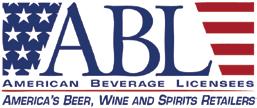
6 minute read
ABL Dispatch
ABL DISPATCH —THE LATEST INDUSTRY NEWS FROM WASHINGTON
BY JOHN BODNOVICH, ABL EXECUTIVE DIRECTOR
Lots has been happening in Washington as lawmakers and the country transition (hopefully) to the beginning of a post-pandemic world. Legacy issues are returning to the spotlight — or at least attempting to — but COVID-19 fallout lingers, especially for the hard-hit hospitality industry. One of American Beverage Licensees’ (ABL) current initiatives is to educate and inform members of Congress about the long road ahead for bar and tavern owners who, having managed to survive shutdowns and operating limitations, are now faced with increased costs of goods, supply chain problems and labor shortages that are hampering their COVID-19 comeback.
On May 3, the application process for the Restaurant Revitalization Fund (RRF) began, with hundreds of thousands of applicants seeking relief from the Small Business Administration (SBA) program. Three weeks later, on May 24, the SBA stopped accepting applications for grants from the $28.6 billion fund. More than 362,000 applications seeking $75 billion in funding were filed, demonstrating the broad need for assistance, but also removing any question that thousands of hospitality business operators are not going to receive these relief funds.
On June 10, Reps. Earl Blumenauer (D-Ore.) and Brian Fitzpatrick (R-Pa.), and Sens. Kyrsten Sinema (D-Ariz.) and Roger Wicker (R-Miss.) introduced the Restaurant Revitalization Fund Replenishment Act to add $60 billion to the fund to support independent restaurants and bars. The path to passage of this legislation is not clear as Congress is faced with a host of issues and bills. But what is clear is that supporters of the legislation are looking for any opportunity to get more relief to struggling businesses as quickly as possible.
As a reminder, eligible entities for RRF grants are businesses that can demonstrate that “the uncertainty of current economic conditions makes necessary the grant request to support the ongoing operations of the eligible entity,” and “in which the public or patrons assemble for the primary purpose of being served food or drink.” These businesses must’ve been open on Feb. 15, 2020, and include:
• Restaurants • Food stands, food trucks and food carts • Caterers • Saloons, inns, taverns, bars and lounges • Brewpubs, tasting rooms and taprooms
ABL plans to continue lobbying for additional RRF funding, just as it has been advocating for the Real Economic Support That Acknowledges Unique Restaurant Assistance Needed to Survive (RESTAURANTS) Act and other measures that would help TLW members and other ABL members get back on their feet after an extraordinarily hard year.
Since the Feb. 25 introduction of the Hospitality and Commerce Job Recovery Act of 2021 by Sens. Catherine Cortez Masto (D-Nev.) and Kevin Cramer (R-N.D.), and Reps. Steven Horsford (D-Nev.), Darin LaHood (R-Ill.) and Jimmy Panetta (D-Calif.), the bill has amassed 86 cosponsors in the House and eight in the Senate. As a reminder, this legislation would create a perishable food and beverage credit to help small businesses cover the costs of inventory lost during COVID-19 closures.
Specifically, the bill “provides a temporary credit for unmerchantable inventory between March 13, 2020, and Sept. 30, 2020, at 90% of the qualified unmerchantable

One of American Beverage Licensees’ current initiatives is to educate and inform members of Congress about the long road ahead for bar and tavern owners who, having managed to survive shutdowns and operating limitations, are now faced with increased costs of goods, supply chain problems and labor shortages that are hampering their COVID-19 comeback.
food and beverage costs for any taxpayer engaged in the active trade of sale of food or beverage as a manufacturer, importer, wholesale distributer or retailer.” ABL is working with the Perishable Food and Beverage Coalition to support this bill.
What’s old is new again: Payment card swipe fees
ABL is once again actively working with the Merchants Payments Coalition (MPC), which was created in 2005 to address retail concerns about opaque and unfair payment card fees. ABL has been a member of the MPC since 2005 and has lobbied Congress on swipe fees, successfully advocating for the Durbin Amendment in the Dodd-Frank Wall Street Reform bill in 2010. ABL was also part of the effort that successfully stopped an attempt to repeal the Durbin Amendment in 2011 and played a role in thwarting another Durbin Amendment repeal effort in 2017.
As bar and tavern owners know, consumers are choosing credit as their preferred method of payment more than ever before for the added security and rewards-earning potential it provides. Unfortunately for small businesses, the current fee of up to 4% per transaction that the credit card companies — Visa, Mastercard, American Express, Discover — impose each time people swipe their card has become the second-highest operating expense for most merchant businesses.
Visa and Mastercard previously announced that they would raise their interchange fees in April 2020, but due to the pandemic, those increases were postponed until this year. In March 2021, Senate Majority Whip Dick Durbin (D-Ill.) and Rep. Peter Welch (D-Vt.) wrote a letter to Visa and Mastercard, asking them to not raise interchange fee rates during the pandemic. Subsequently, the companies delayed their fee increases until 2022.
In light of these developments and with recent member turnover in Congress, ABL is working with coalition partners to examine different ways to achieve a more competitive and transparent payments system for retailers and consumers. ABL is going to be involved in these conversations and welcomes input from its members. Now that the Department of Justice has decided against sunsetting or modifying American Society of Composers, Authors and Publishers (ASCAP) and Broadcast Music Inc. (BMI) consent decrees, and with the effects of the Music Modernization Act still registering, ABL and its partners in the MIC Coalition are beginning outreach to educate and remind members of Congress of the remaining challenges for bars, taverns, restaurants and other businesses that wish to use copyrighted musical works. These challenges include:
• Lack of transparency. Without a comprehensive and authoritative database of options and licensing requirements from all performing rights organizations (PROs), businesses are often left to guess what licenses they need and what music is covered.
• Coercive behavior and overreach. For too long, small businesses have been subject to abusive tactics by those representing the PROs. This behavior has already prompted several states to enact codes of conduct to regulate the manner in which PROs interact with licensees (as in Virginia, Washington, Nebraska, etc.).
• PROs not governed by consent decrees. Other PROs (e.g., the Society of European Stage Authors and Composers or SESAC, and Global Music Rights or GMR) represent far fewer works, but often extract fees comparable or even higher than those charged by the ASCAP and BMI.
Despite credible allegations of anticompetitive behavior, these PROs are not governed by the same procompetitive safeguards as ASCAP and BMI. Moreover, none of the
PROs compete with each other for licenses with users.
Save the date!
ABL will hold its 2021 Annual Meeting from Oct. 17-18 at the Hilton New Orleans/St. Charles Avenue in New Orleans, La. More details will follow. TLW
ABL is the voice of America’s beer, wine and spirits retailers in Washington, D.C. ABL represents the TLW and its many members, as well as thousands of other on- and off-premise retailers of beverage alcohol across the United States.






